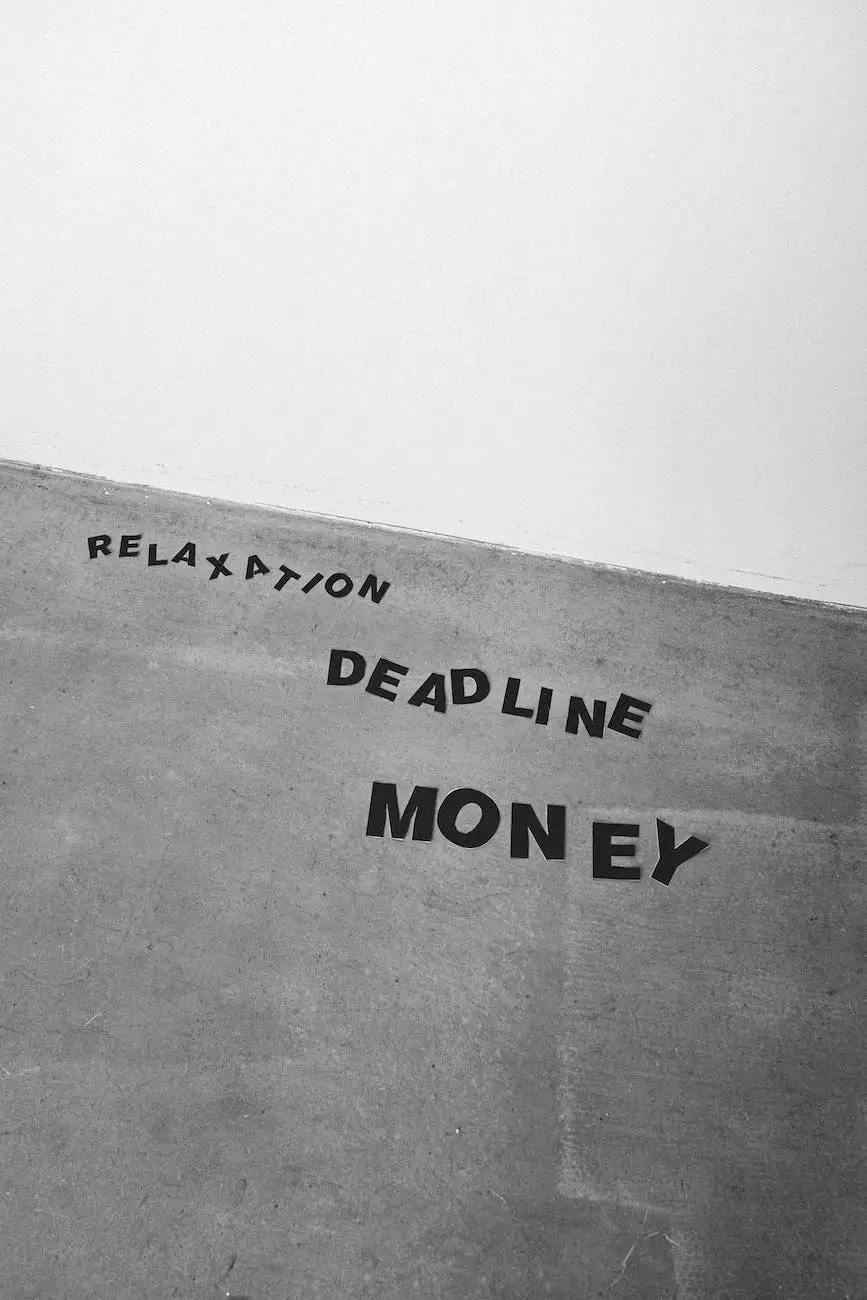How to Deal with Debt Collectors When You Can't Pay

Welcome to Social Service of America, your trusted resource for community support and assistance. In today's guide, we will provide you with valuable insights on navigating the challenging world of debt collection when you find yourself in a situation where paying your debts becomes difficult.
Understanding the Role of Debt Collectors
Debt collectors play a significant role in the financial ecosystem. They are individuals or organizations who specialize in collecting overdue debts on behalf of creditors. When you are unable to make payments, debt collectors may start contacting you with the purpose of recovering the money owed.
It's important to remember that debt collectors must follow certain rules and regulations outlined in the Fair Debt Collection Practices Act (FDCPA). These regulations are in place to protect consumers from unfair and abusive practices.
Key Strategies for Dealing with Debt Collectors
1. Stay Calm and Assess Your Situation
When facing financial difficulties, it is crucial to remain calm and assess your situation objectively. Take the time to review your debts, understand the amounts owed, and gather all relevant documentation.
Tip: Create a detailed spreadsheet or document with an overview of your outstanding debts, including creditor names, contact information, account numbers, and balances.
2. Know Your Rights
Educate yourself about your rights as a consumer. Familiarize yourself with the protections provided by the FDCPA to avoid falling victim to illegal debt collection practices.
Tip: Visit the official website of the Consumer Financial Protection Bureau (CFPB) for a comprehensive overview of your rights as a consumer. Stay informed and arm yourself with knowledge to effectively deal with debt collectors.
3. Communicate with Debt Collectors
Open lines of communication with debt collectors are essential. Contact them and clearly explain your current financial situation. Be honest about your inability to make payments.
Tip: Maintain a log of all communication with debt collectors, including dates, names of representatives, and details of conversations. This log can serve as evidence in case of disputes or violations of the FDCPA.
4. Negotiate Payment Options
Explore opportunities to negotiate payment options with debt collectors. They may be willing to agree to a revised payment plan or a reduced settlement amount.
Tip: Before entering into negotiations, carefully evaluate your budget and determine a realistic amount you can afford to pay each month or propose a lump-sum settlement. Be prepared to provide evidence of your financial situation if requested.
5. Seek Professional Help
If dealing with debt collectors becomes overwhelming or you feel unsure about how to proceed, consider seeking professional help. Non-profit credit counseling agencies like MMI (Money Management International) can provide expert guidance and assistance.
Tip: Contact MMI through our website to connect with certified credit counselors who can assess your situation and provide personalized advice tailored to your needs.
Taking Control of Your Financial Future
At Social Service of America, we understand the challenges individuals face when dealing with debt collectors. Our mission is to support our community and provide resources to help you regain control of your financial future.
Remember, even if you can't pay your debts at the moment, taking proactive steps and seeking assistance can make a significant difference. By engaging in effective communication and understanding your rights, you are on a path towards financial stability and freedom.
Take advantage of the information and strategies provided in this guide, and empower yourself to face debt collectors with confidence. Together, we can overcome financial obstacles and build a stronger, debt-free future.
Further Resources:
- Consumer Financial Protection Bureau - Ask CFPB
- Money Management International (MMI)










